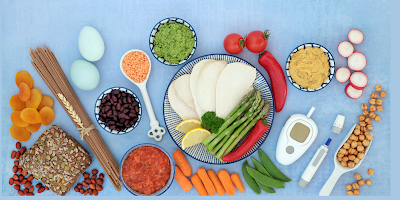Discover how to naturally reverse your diabetes and lose weight in 2023 with this guide.
Find out the advantages of maintaining a healthy diet, engaging in regular exercise, and controlling your stress.
Identify the foods that lower blood sugar and the supplements that have been proven to be beneficial. Learn some advice on how to set objectives and monitor progress. Reverse your diabetes now by taking charge of your health!
Without using diabetes medications, type 2 diabetics who are able to lower their HbA1c to less than 42 mmol/mol (6%) are said to have reversed or resolved their diabetes. This is often referred to as remission of diabetes.
When someone with type 2 diabetes says they have reversed their diabetes, they typically mean that their insulin sensitivity has significantly improved over time.
Gaining less weight can be especially helpful in slowing the progression of diabetes. According to Harvard University, 85 % of individuals with type 2 diabetes are overweight.
Type 2 diabetes can be reversed with time and effort, and the results can be very satisfying with reduced fatigue and greater overall health.
Make sure to talk to your healthcare team first if you think you need to stop taking your diabetes medication.
Chronic condition of diabetes
Millions of individuals throughout the world suffer from the chronic condition of diabetes. It is characterized by excessive blood sugar levels because there is insufficient insulin, the hormone that controls how the body uses glucose. Diabetes can cause major problems such heart disease, stroke, kidney damage, blindness, and amputations if it is not controlled
Erratic Blood Sugar? Learn how to lower Blood Sugar. Click here.
Recent research has nevertheless demonstrated that diabetes can be treated with dietary and activity modifications. In this article, we'll talk about how to reverse diabetes and how to take charge of your health to reduce the likelihood of problems and enhance your quality of life.
Two main types of diabetes
First, let's talk about the causes of diabetes. There are two main types of diabetes: Type 1 and Type 2. Type 1 diabetes is an autoimmune disorder in which the body's immune system attacks and destroys the insulin-producing cells in the pancreas. This type of diabetes usually develops in childhood and requires lifelong insulin therapy. Type 2 diabetes, on the other hand, is caused by a combination of genetic and lifestyle factors. It occurs when the body becomes resistant to insulin and the pancreas cannot produce enough insulin to keep up with the demand. This type of diabetes is often associated with obesity, lack of physical activity, and poor diet.
The good news is that lifestyle modifications can reverse both forms of diabetes. The secret is to increase insulin sensitivity and encourage your pancreas to create more of the hormone. This can be accomplished by combining weight loss, exercise, and a healthy diet.
Healthy diet
In managing diabetes, diet is essential. High in fiber, fruits, and vegetables, and low in saturated fat, trans fat, and added sweets, a healthy diet for diabetes should be. You can reduce your blood sugar levels, decrease weight, and increase your insulin sensitivity by eating a diet high in whole, unprocessed foods.
A low-carb diet, in particular, has been proven to be particularly helpful for managing diabetes, according to study. This is due to the fact that carbs are converted to glucose in the body and have the greatest impact on blood sugar levels.
Exercise
Exercise is also crucial for managing diabetes. It can help you reduce your blood sugar levels, decrease weight, and increase your insulin sensitivity. Your risk of heart disease and other issues associated to diabetes can be lowered by engaging in regular physical activity.
On most days of the week, try to get in at least 30 minutes of moderate-intensity activity, such as brisk walking, cycling, or swimming. Start out cautiously if you haven't been active in a while, then gradually increase it over time.
Weight loss
Another crucial element in diabetes reversal is weight loss. Losing merely 5 to 10% of your body weight can greatly increase your insulin sensitivity and lower your blood sugar levels. Obesity is a key risk factor for type 2 diabetes. The best ways to lose weight are through a balanced diet and regular exercise, but you may also want to think about working with a registered dietitian or a certified diabetes educator who can help you create a personalized plan that works for you.
Finally, it's critical to keep an eye on your blood sugar levels and take any drugs that your doctor has advised. You may observe the results of your lifestyle modifications by keeping an eye on your blood sugar levels and making any necessary adjustments. Metformin and sulfonylureas are two examples of medications that can lower blood sugar and increase insulin sensitivity. However, lifestyle modifications should still be made in addition to taking these medications, not as a substitute for them.
Erratic Blood Sugar? Learn how to lower Blood Sugar. Click here.
In conclusion
Diabetes is a serious condition that can lead to serious complications if left untreated. However, recent studies have shown that diabetes can be reversed through lifestyle changes, such as diet, exercise, and weight loss. By following a healthy diet, getting regular physical activity, and losing weight, you can improve your insulin sensitivity, lower your blood sugar.
Again, As mentioned before. Make sure to talk to your healthcare team first if you think you need to stop taking your diabetes medication.
Join the online community at type2diabetes.com for free and discuss your concerns and experiences with the condition.
Watch This Video To Learn More...











